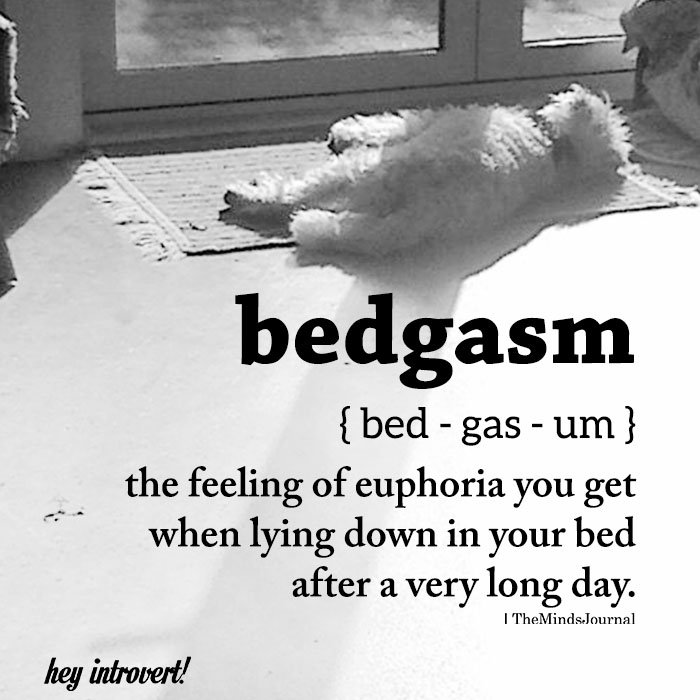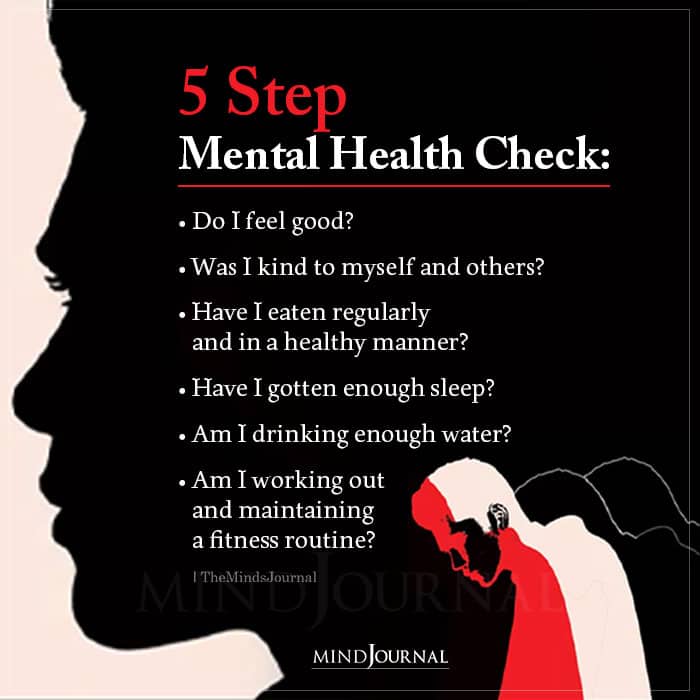Do you feel stressed and overwhelmed most of the time? Do you just want to take a break from all your responsibilities and just relax? Well, you are not alone. The latest bed rotting trend is taking social media by storm and it is exactly what we might need!
If you’ve spent any time on social media recently, you may have come across a new trend called “bed rotting.” But what is bed rotting trend exactly, and why is it so popular? Let us explore the origins of the term, the reasons behind its popularity, and what it says about attitudes towards self-care and mental health.
What is bed rotting?
If you’re a frequent user of social media app TikTok, you may have come across a new trend called “bed rotting.” But what is bed rotting? To put it simply, it is a form of self-care.
Bed rotting meaning: The term, which originated from a viral tweet, refers to the act of spending time in bed without any particular goal or agenda.
It’s a playful way of embracing self-care and taking a break from the pressures of productivity and achievement, and it has quickly gained popularity among young people on the app.

While bed rotting meaning may sound unproductive, it’s actually a powerful way of embracing self-care and taking a break from the constant pressure to be productive and achieve more.
Origins of the term bed rotting
The term “bed rotting” appears to have originated from a tweet that went viral and sparked a conversation about the idea of taking time for oneself instead of grinding and hustling all the time. It encourages engaging in self-care, which can include activities such as sleeping in and relaxing in bed.
Eventually, the term gained traction on TikTok, with videos featuring the hashtag #bedrotting amassing millions of views. These videos often feature people lounging in bed, enjoying their favorite snacks, reading books, or simply taking a nap.
The trend has become a way for young people to embrace the idea of taking a break from productivity and prioritizing rest and relaxation.
Related: Why We Procrastinate And How To Take Advantage Of It
Now that we know what is bed rotting and how the term originated, let’s explore why it is so popular.
Why is bed rotting trending?
So why has “bed rotting” become such a popular trend? There are several reasons that may help explain its appeal.
1. Focus on self-care
The bed rotting trend speaks to a broader cultural shift towards self-care and mental health. In recent years, there has been a growing awareness of the importance of taking care of oneself, both physically and mentally.
This has led to a rise in trends such as mindfulness, meditation, and yoga, as well as a greater openness about mental health issues.
“Bed rotting” can be seen as another facet of this trend, as it encourages people to prioritize rest and relaxation as a way of taking care of themselves.
In a world that often values productivity and achievement above all else, “bed rotting” can be a powerful way of pushing back against those pressures and asserting the importance of self-care.
2. Reaction to stress
This bed rotting trend may be a response to the stresses of the pandemic. With many people spending more time at home and dealing with the emotional toll of the pandemic, “bed rotting” can be a way of coping with those stresses.
By taking a break from the constant demands of work, school, and social media, young people can find a moment of peace and respite in the comfort of their own beds.
3. Highly relatable
The bed rotting trend’s popularity may simply be due to its relatability. Who among us hasn’t felt the urge to stay in bed a little longer, especially on a lazy weekend morning?
“Bed rotting” is a way of celebrating that feeling and turning it into a deliberate act of self-care. It’s a trend that anyone can participate in, regardless of age, gender, or background.

4. Rejecting social expectations
It is part of a broader movement towards rejecting the societal expectation of constant productivity. Instead of giving in to society’s expectations of constantly pursuing success, it motivates us to pause, reflect and relax.
In a world that glorifies “hustle culture,” where the pressure to constantly work and achieve is often overwhelming, “bed rotting” is a way of pushing back against that expectation and asserting our right to take a break and prioritize our well-being.
5. Taking a stand
The bed rotting trend can be seen as a form of activism. By embracing the idea of “bed rotting,” young people are pushing back against a culture that often shames those who aren’t constantly working or achieving.
By asserting their right to rest and recharge, they are challenging the idea that productivity and achievement are the only measures of success.
6. Increasing connection
This trend may also be driven by a desire for community and connection. By participating in the trend and sharing their own “bed rotting” experiences, young people are creating a sense of community and solidarity around the idea of taking care of oneself.
In a world that often feels lonely and disconnected, the trend can be a way of forging connections and finding common ground.
What bed rotting says about self-care attitudes
At its core, the bed rotting trend represents a shift in attitudes towards self-care and mental health. Young people, in particular, are increasingly prioritizing their well-being and recognizing the importance of taking care of themselves.
Understanding bed rotting meaning can help us realize that it is just one manifestation of this trend, but it speaks to a broader movement towards embracing self-care and rejecting the idea that productivity and achievement are the only measures of success.
Of course, there are some who may view bed rotting as a form of laziness or indulgence. But proponents argue that it’s an important aspect of self-care and mental health.
Taking the time to rest and recharge can actually make us more productive in the long run, as it allows us to approach our work and responsibilities with renewed energy and focus.
Bed rotting can be a way of pushing back against the shame of being unproductive at times and asserting our right to take a break and prioritize our well-being.
It’s important to note that bed rotting should not be seen as an excuse to avoid responsibilities or neglect important tasks. Rather, it’s about finding a balance between productivity and rest, and recognizing that taking care of oneself is just as important as achieving goals and meeting deadlines.
We have explored what is bed rotting why it is so popular, so now let’s delve into how you can practice bed rotting in a healthy way.
Related: Embracing Your Inner Procrastinator

Tips for embracing bed rotting trend
If you’re interested in trying out the bed rotting trend for yourself, here are some tips to get started:
1. Set aside dedicated bed rotting time
Whether it’s on a lazy weekend morning or after a long day of work, make a conscious effort to set aside time for yourself to relax in bed.
2. Create a cozy and comfortable environment
Invest in comfortable bedding, pillows, and blankets to make your bed a comfortable and inviting space.
3. Disconnect from technology
Turn off your phone, laptop, and other devices and allow yourself to fully disconnect from the constant demands of technology.
4. Engage in relaxing activities
Whether it’s reading a book, watching a movie, or simply taking a nap, engage in activities that help you relax and unwind.
5. Don’t feel guilty
Remember that taking care of yourself is important, and that rest and relaxation can actually make you more productive in the long run.
Bed rotting is NOT laziness
Some media outlets have characterized “bed rotting” as laziness, apathy or depression. However, mental health experts caution against using stigmatizing language and suggest more nuanced conversations surrounding issues like motivation, purpose and self-care.
Excessive time in bed can be a sign of underlying physical or mental health concerns, so people should seek advice from trusted sources like medical professionals or mental health counselors, rather than social media trends.
Overall, “bed rotting” seems to be a derogatory term used flippantly in online jokes and memes. But the issues it attempts to describe struggles with motivation or desire to disengage, may actually represent real challenges for some individuals that deserve empathy, not ridicule.
The behaviors it describes could signal legitimate health issues worthy of compassionate discussion, not judgment based on social media trends.
Is bed rotting a sign of poor mental health?

While people are joking about spending excessive time in bed, is there any cause for concern behind the humor? Is it a potentially troubling phenomenon that deserves our attention?
Many of the videos and memes show people proudly proclaiming how long they’ve spent in bed that day or mocking their bed rotting tendencies. However, mental health experts warn that excessive time in bed, especially as a habit, could indicate underlying issues.
Experts note that bed rotting could be a symptom of depression, anxiety or burnout from stress overload. It may also stem from lack of community, boredom or lack of purpose and direction in life.
For college students and young adults, bed rotting may be a coping mechanism for navigating new responsibilities and independence for the first time. But without proper support, these issues can spiral into serious mental health challenges.
That’s why the bed rotting trend is so concerning. By dismissing it as a joke, we fail to recognize potential danger signs and miss opportunities to help those who need support the most. Instead of mocking “bed rotters,” we should check in with compassion.
Related: Am I Depressed Or Lazy? 4 Things To Know
Common misconceptions about bed rotting
To better understand bed rotting meaning, we also need to understand the myths associated with it. Here are some of the most common misconceptions about bed rotting that we should be aware of:
1. It’s just laziness
While some people may characterize bed rotting as simple laziness, experts warn there are often deeper issues at play. Excessive time in bed can be a symptom of depression, anxiety, burnout, lack of motivation, or difficulty adjusting to changes in life. Dismissing it as “laziness” fails to address the root causes.
2. It will go away on its own
Without intervention, counseling or support, issues that lead to bed rotting are unlikely to simply disappear. They may actually worsen over time and impact other areas of life if left unaddressed. Professional help, lifestyle changes, and social support are often needed.
3. It only affects certain “types” of people
Anyone can struggle with bed rotting trend, regardless of personality, upbringing, or background. Issues like stress, lack of purpose, and mental health concerns can potentially impact all demographics. We should be careful not to stereotype who is “at risk” for bed rotting behaviors.
4. It’s just a phase
While bed rotting may start out as a temporary coping mechanism, without proper care and self-reflection, it can easily become habitual and chronic over weeks, months or even years. Dismissing it as “just a phase” fails to recognize the potential long-term consequences.
5. People bed rotting just need to “pull themselves together”
Telling someone to “snap out of it” or “pull themselves together” is not helpful and may make them feel ashamed. Bed rotting often arises due to complex issues that require compassion, professional help and lifestyle changes to improve. External motivation or tough love rarely works on its own.
Bed rotting tends to be more nuanced and complex than many of the common misconceptions suggest. It’s important to approach these issues with empathy, understanding and a willingness to seek the root causes and proper treatment.
With care, guidance and support, even those struggling with bed rotting can make positive changes.
How to balance bed rotting with responsibilities
Balancing bed rotting with your responsibilities is important to ensure that you’re still meeting your obligations while also taking care of yourself. Here are some tips to help you find that balance:
1. Schedule time for both productivity and relaxation
It’s important to set aside dedicated time for work and for bed rotting. By scheduling time for both, you can ensure that you’re meeting your responsibilities while also taking care of yourself.
2. Prioritize your most important tasks
When you have a lot on your plate, it’s important to prioritize the tasks that are most important and urgent. By focusing on these tasks first, you can meet your obligations and manage time for relaxation.
3. Use “bed rotting” as a reward
If you have a big project or task that you need to complete, use bed rotting trend as a reward for finishing it. This can motivate you to work more efficiently and give you something to look forward to.
4. Be mindful of your time
When you’re bed rotting, be mindful of the time and avoid letting it consume your entire day. Set a time limit for yourself and stick to it, so that you can still accomplish the things you need to do.
5. Use relaxation techniques to improve productivity
Taking time to relax and recharge can actually improve your productivity and focus. So, by taking some time to bed rot, you may actually be setting yourself up for greater success in the long run.
Remember, it’s important to find a balance between work and relaxation in order to maintain your mental and physical health, and to avoid burnout. By being mindful of your responsibilities and making time for self-care, you can achieve that balance and enjoy the benefits of both productivity and relaxation.
Related: Kaizen: A Japanese Technique for Overcoming Laziness

Rest, don’t rot
Whether it’s by sleeping in on a lazy Sunday morning or taking a nap after a long day of work, the bed rotting trend is a way of celebrating the simple pleasures of life and recognizing the importance of self-care in our busy, stressful world.
By encouraging young people to prioritize rest and relaxation, bed rotting is pushing back against the pressures of productivity and achievement and asserting the importance of taking care of oneself.
But it is also important to be responsible and focus on personal growth and development instead of simply “rotting” your life away. So make sure to prioritize self-care, rest and relaxation, but when it’s time, you should get up and get going as well.
Trends will come and go, life will keep happening.
So go ahead, embrace the trend, and take some time to relax and recharge without avoiding your responsibilities.










Leave a Reply